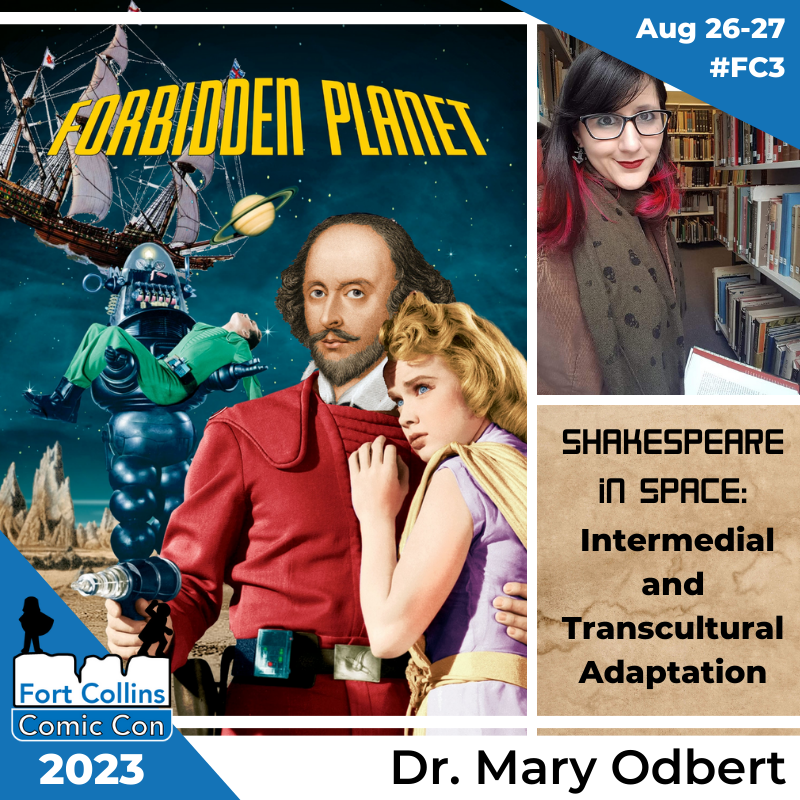Presenter: Dr. Mary Odbert
Metro-Goldwyn-Mayer’s 1956 CinemaScope classic Forbidden Planet is heralded as a foundational classic in science-fiction film history, holding accolades for being the first of the techno-horror genre, the first to feature a fully electronic score, and the first example of faster-than-light space travel on film. It is also unofficially understood to be an obvious adaptation of The Tempest. Although its themes of isolation, conquest, and possessive paternal aggression set in a realm of technological “magic” build an undeniable case for the film to be considered a Shakespearean adaptation, Forbidden Planet never quite acknowledges its early modern roots. Nearly 30 years after the film’s premiere, Bob Carlton penned the long-awaited Return to Forbidden Planet, a jukebox musical which brings the story to an unabashedly Shakespearean stage. Aided by the inherent excess of the musical genre, Captain Tempest and Doctor Prospero star in an adaptation so overt that it seems to satirize not only its sources but the notion of intermedial adaptation altogether. Although Return to Forbidden Planet was never strictly on Broadway, the production’s move to Off-Broadway in 1991 from its London origins is testament both to its commercial success and its transcultural capital. A West End Olivier Award winner, a jukebox of American rock and roll, and a simultaneous adaptation of both American MGM sci-fi and Shakespearean text with intercontinental performance histories, Return to Forbidden Planet troubles the boundaries between Americanness, Englishness, and both cultures’ perceptions of the other.
Borne of an upcoming publication, this panel will be a scholarly analysis of The Tempest, Forbidden Planet, and Return exploring not just the works themselves, but the interplay they facilitate between culture and genre when Shakespeare is adapted across nationally distinct and transhistorical media.

